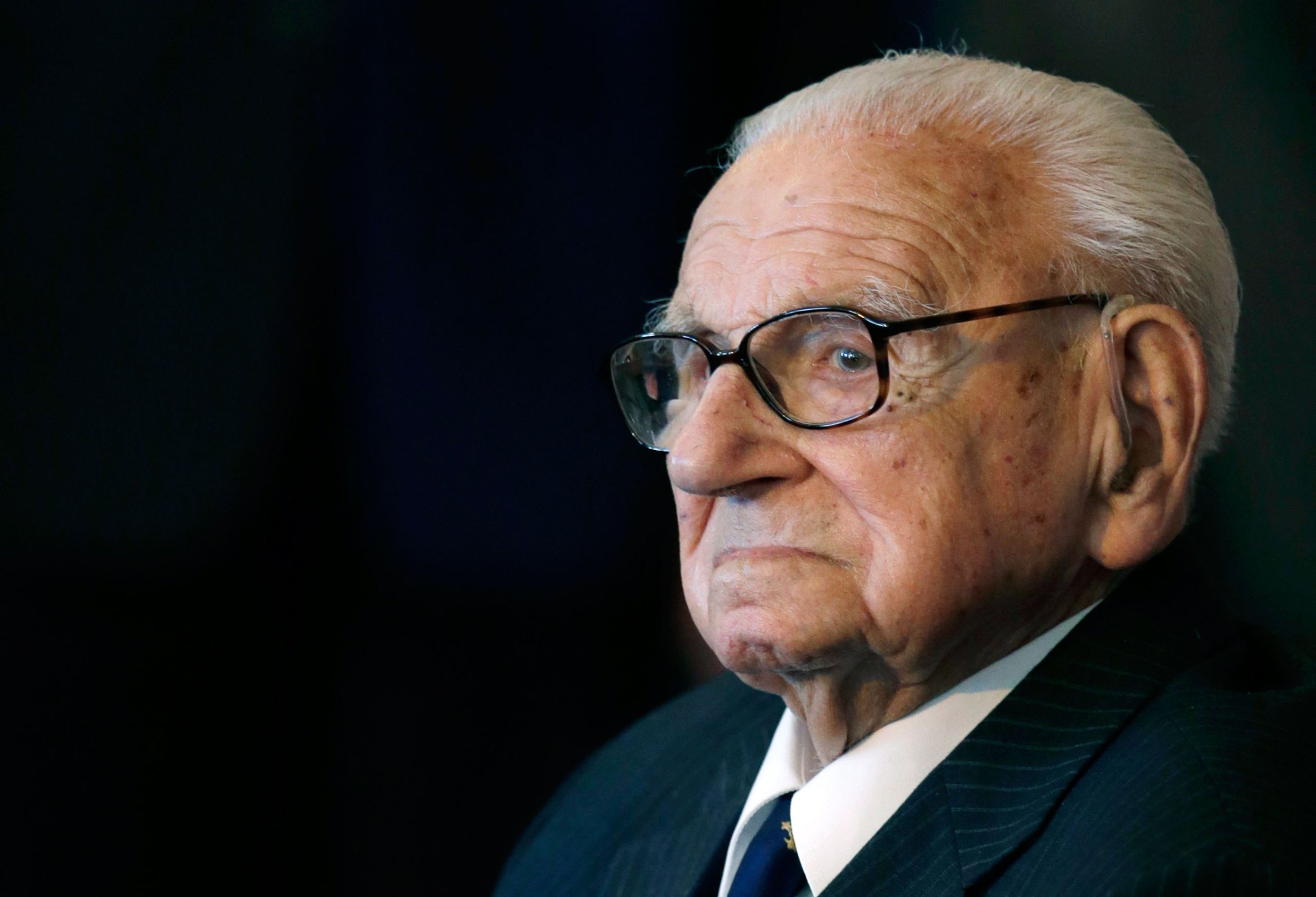
What if the only way you can be good is to be great? There are moments in history when people are confronted by moral choices so stark that they either have to take risks or turn away. In 1938 it became clear that the Jewish children of Europe were marked for extinction. All across the world, people came to know this shocking truth. And all across the world, people did what we all do—they turned the page of the paper, took another sip of coffee, shook their heads at the tragedy of it all.
Sir Nicholas Winton, who died Wednesday at the age of 106, realized the threat while traveling through Czechoslovakia. Great turning points in human history do not take place in public but in a secret chamber in the hearts of human beings. The heart must be awake before the dramatic action. Winton, a Jew by descent who had been raised as a Christian, decided that he could not simply shake his head and drink his coffee and know that these children would die. His heart woke; he decided to be good by being great.
Winton arranged trains to carry children from Nazi-occupied Prague to Britain. He became the “one-man children’s section of the British Committee for Refugees from Czechoslovakia.” His plans were ambitious: He drew up lists of thousands of children and persuaded families to accept these refugee children.
We all know people who try to get us involved in a cause. They plague us with their earnestness and single-mindedness. How many checks have been written to get someone to leave us alone? But Winton wasn’t asking for money. He was asking for much more—that people take a child from a different country and often a different tradition into their homes. He wanted his countrymen to save children when no one else would. And he succeeded.
Winton kept quiet about his work, and the truth of his heroism did not come to light for decades. For almost 50 years he was silent until his wife found documents in the attic, and his story was told. Winton said he always regretted that he could not do more, but unlike other rescue operations, he was essentially working alone, a one-man lifeboat for drowning children.
This remarkable yet humble man saved 669 children. In this YouTube video, you can see how he did it, and what it meant. It is impossible not to cry at the end of these four minutes.
We often ask why, during times of war, did people not intervene? The truth is most of us do not stir ourselves to act. We know of suffering in the world and yet continue to live our lives, go to work, take care of our families, and sleep in peace. Some precious souls are moved to a goodness that transcends explanation. Sir Nicholas Winton left behind many who lived, had children and grandchildren, because of his drive to save children while the world was burning. In his memory, we should all observe a moment of silence, and promise to do better. Sometimes just being good can make us great.
More Must-Reads From TIME
- The 100 Most Influential People of 2024
- The Revolution of Yulia Navalnaya
- 6 Compliments That Land Every Time
- What's the Deal With the Bitcoin Halving?
- If You're Dating Right Now , You're Brave: Column
- The AI That Could Heal a Divided Internet
- Fallout Is a Brilliant Model for the Future of Video Game Adaptations
- Want Weekly Recs on What to Watch, Read, and More? Sign Up for Worth Your Time
Contact us at letters@time.com